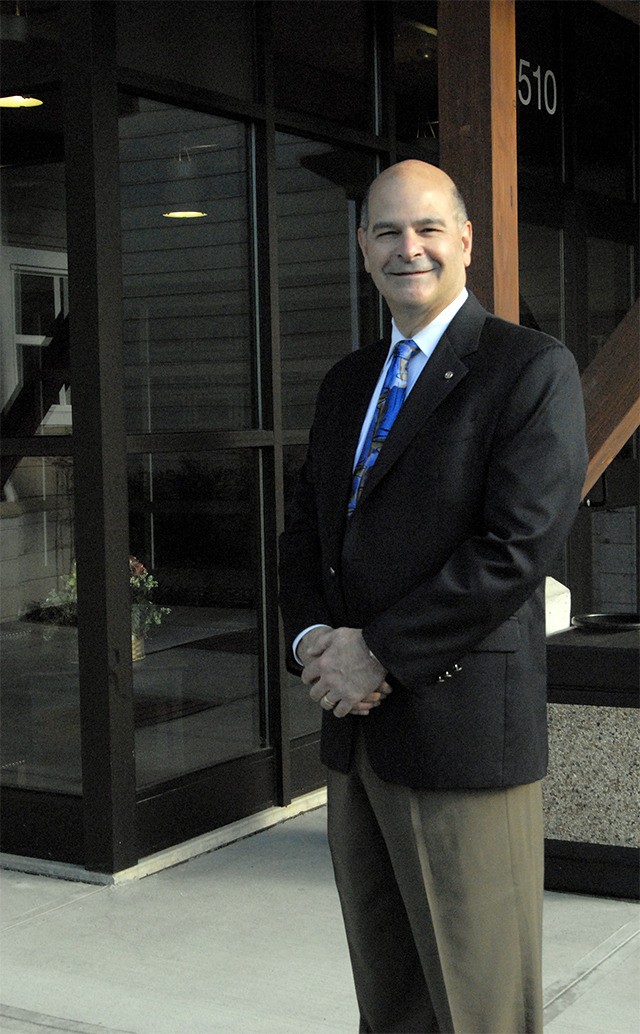People stopped their work in a Valley coffee shop when Dr. Anthony Smith came to the counter. They gathered around to say hello, a barista called over the manager who hadn’t met him yet, and customers came up to shake his hand and greet him.
In response, Smith asked about their families, made more introductions and was warm and gracious to all, and maybe just a little embarrassed by the attention. Riverview School District’s Superintendent, it seemed, was a Valley rock star.
Smith laughed at the idea. After all, it’s been years since he played music professionally, and that was classical trumpet. The way he sees it, he’s just sticking with his plan.
“I always wanted to be part of a small community, a tight-knit community,” said the Carnation resident, who is also Grand Marshal of this year’s Carnation 4th of July parade.
Smith grew up and attended school in Shoreline, but knew he wanted to play a larger part in his community as an adult. He was “selective” about teaching positions when he graduated from Western, choosing South Whidbey, where he taught his first love, music, as well as math, PE, and other subjects.
After 11 years teaching, he made the change that brought him to the Riverview School District 20 years ago.
“I just wanted to work with students more one on one,” he said, “…work with programs, help the whole school be a better school, whether it’s educationally or culturally. I thought counseling was a very good opportunity to do that, and I was right, you get to work with the teachers and the administration closely, and all students closely, and do really neat programs…”
South Whidbey had no open counselor positions at the time, but Carnation did—a full-time spot that was shared 50-50 with the high school in Duvall.
There, Smith was surprised by two things the district didn’t have, a high school athletic complex, and an alternative education option.
“We were probably the biggest school system west of the mountains that didn’t have a high school alternative program.”
The athletic complex had to wait for a successful bond, but the alternative program, CLIP, was in place within two years, driven largely by Smith’s efforts to keep kids from dropping out of school.
“The statistics to do with earning a high school diploma, literacy and having goals, are just startling in terms of success, community contribution, economic viability…,” he said. “If these kids struggle in school and don’t have that success identity, then they struggle in life. So to me it wasn’t a matter of should we do it, it was a matter of how can I convince everybody, and when are we doing it?”
“And hats off to the principals and superintendent who supported it,” he added.
Today, CLIP and the district’s home-schooling parent partnership PARADE account for about 10 percent of Riverview students who graduate from high school each year, he proudly points out.
The success of CLIP was the first of many reasons he later decided to start his climb up the district’s administrative ladder.
“I just started seeing you could really make a difference in leadership positions,” he said, but then, taking the lead was already familiar to him. “I’ve always been involved in leadership ever since I was little, being a firstborn and everything.”
Smith started school part time, and kept his day job. He earned his principal’s accreditation in 2000, and his doctorate in education leadership in 2003, from Seattle University. He also got a promotion mid-studies, becoming the district’s Director of Teaching and Learning in 2001. Next, he became the assistant superintendent, and last year, he was chosen as the district’s new superintendent.
His continuing education, added to his existing mix of work, family (he and his wife, Catherine have a son and a daughter) and his commitment to staying physically fit, took the last of his free time, he said, without complaint.
“I always like getting things done in the minimum time,” he said.
Less time in grad school meant more time for things like skiing with Catherine, playing music occasionally, volunteering at the REF runs in the Valley, and going to school and community events, several nights a week.
“If the schools expect the community to support the schools, the schools also should be supporting the community,” he said. “I feel very strongly about that.” It’s not work to him, just part of the plan.



